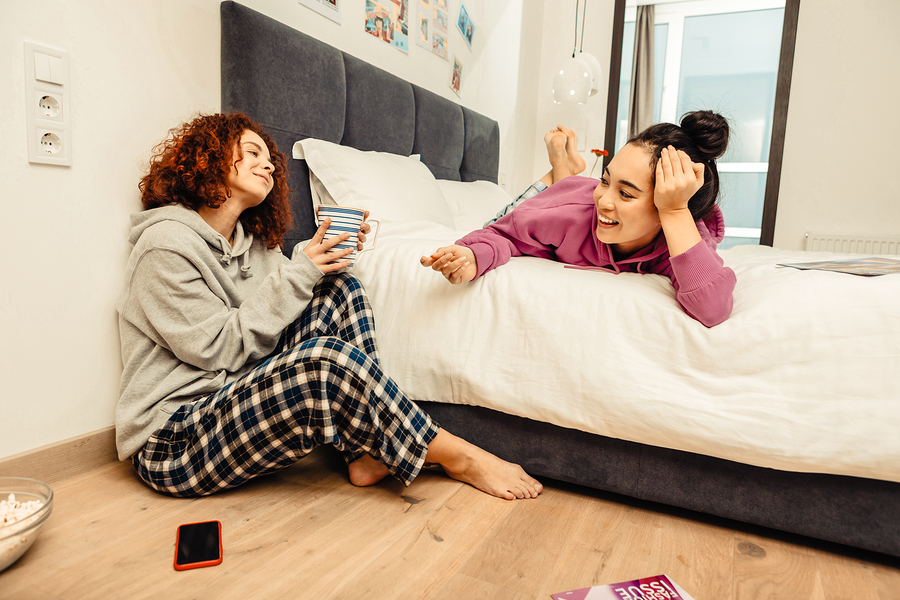
When I moved into my New York City apartment a few months ago, a roommate-finding site matched me with three random roommates, and the four of us could not be more different. We work in different fields (fashion, media, education, and computer science). Our families come from different cultural backgrounds. We are of different faiths and have different personalities. However, I learned early on that despite our many differences, we share one unfortunate commonality: We have all struggled to love our bodies.
RELATED: How I Learned to Focus on My Health, Not My Weight
During one of our first nights in the apartment together, a conversation about where to buy groceries turned into a conversation about how we’ve experienced eating disorders, pressure to fit societal beauty standards, and weight loss obsessions. Realizing that body shape and size was such a sensitive topic among the four of us, I made it my mission to ensure that our apartment is a body positive zone. I’ve noticed that taking the following steps has changed the overall mood of our apartment and has created a more safe, comfortable, and loving environment.
1. Celebrate inner beauty
In today’s society, we tend to praise someone who has lost weight or compliment someone for looking skinny. These appearance-based comments feed into societal norms that praise smaller bodies more than larger bodies. Not to mention, they value a person’s outward appearance more than their unique gifts and talents.
Instead of commenting on my roommates’ appearances, I compliment them on their inner beauty. For example, I congratulated one roommate on being named the top sales representative at her company, and I told my other roommate that I can’t wait to see the final outcome of a blouse she’s sewing together. I’m invested in their gifts and talents, and by celebrating each other’s accomplishments, we’ve created a safe zone in our apartment where we value each other for more than the way we look.
2. Don’t moralize food or gym decisions
During the first few weeks in my new apartment, I noticed how one of my roommates often said she was “good” when she went to the gym or ate salad, and “bad” when she skipped the gym or ate a piece of pizza. I’ve learned from my past experience with food restriction, calorie counting, and negative self-talk that these decisions are not “good” or “bad.” We need to support healthy living in a holistic measure. To me, this means we should all appreciate our unique health needs and practice lifestyles that are good for our mental, physical, social, and spiritual health.
The next time my roommate said she was “bad,” I reminded her that skipping the gym when we need sleep or feel exhausted can be a healthier choice than forcing ourselves to do something that will make us feel miserable. Similarly, intuitive eating, or listening to our body’s hunger cues to guide us in our food choices, is healthier than following a strict diet. I was happy when she came to me the next day telling me that she was going to try to listen to her body more and not be so hard on herself to follow strict diet rules.
3. Encourage positive self-talk
When I was struggling to love my body, I tried to improve my perception of myself by stopping negative self-talk in its tracks and complimenting myself instead. For example, anytime I thought to myself, “I hate my short and stout legs,” I would tell myself, “My strong legs are beautiful, and I’m thankful for how they help me to walk, run, and dance.” Likewise, I decided to become a voice of body positivity in our apartment.
Anytime one of my roommates talks about how she just needs to lose weight to get down to a certain size, I remind her that healthy people come in all shapes and sizes. I’m also not afraid to tell her the truth; she is beautiful as she is!
It’s important that we support body-positive ideals in our everyday lives and in our communities. We can all do our part to work against negative feelings about body image by letting our loved ones know that they are loved, worthy, and beautiful no matter their shape or size.
*If you are worried about someone who is severely struggling with food and weight issues, you should refer them to the National Eating Disorders Association helpline.
Originally published May 29, 2019.